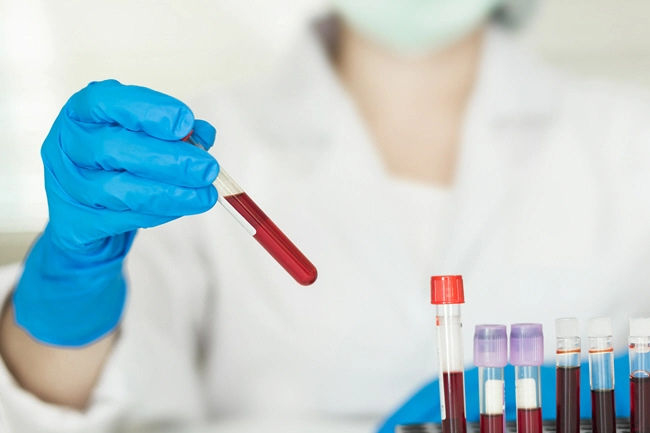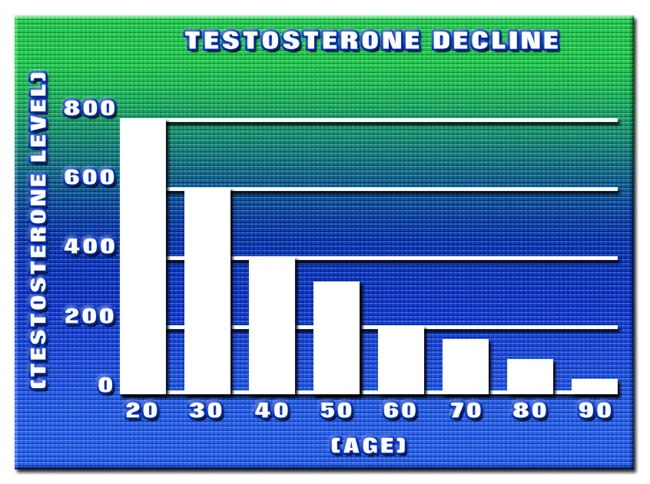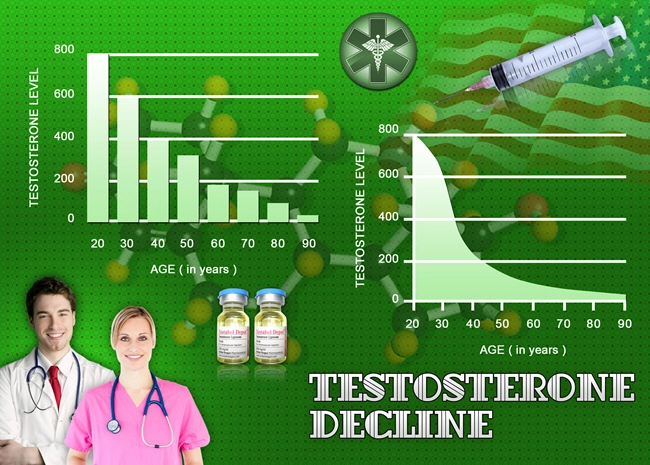
Introduction
Testosterone enanthate, a commonly prescribed form of testosterone replacement therapy, has been widely utilized to address hypogonadism and other conditions related to low testosterone levels in American males. While its benefits in enhancing muscle mass, strength, and overall vitality are well-documented, the impact of testosterone enanthate on skin health, particularly its association with acne, warrants a closer examination. This article delves into the dermatological effects of testosterone enanthate, offering insights and guidance for American men navigating its potential side effects.
The Role of Testosterone in Skin Health
Testosterone, a key androgenic hormone, plays a pivotal role in various physiological processes, including skin health. Androgens, such as testosterone, stimulate sebaceous glands to produce sebum, an oily substance that lubricates the skin and hair. While sebum is essential for maintaining skin hydration and barrier function, excessive production can lead to clogged pores and the development of acne.
Testosterone Enanthate and Acne Development
The administration of testosterone enanthate can lead to elevated levels of testosterone in the body, which may exacerbate acne in susceptible individuals. The increased sebum production triggered by higher androgen levels can create an environment conducive to the proliferation of Propionibacterium acnes, a bacterium implicated in acne pathogenesis. Consequently, American males undergoing testosterone enanthate therapy may experience an increased incidence or worsening of acne, particularly on the face, chest, and back.
Managing Acne During Testosterone Enanthate Therapy
For American men experiencing acne as a side effect of testosterone enanthate, several management strategies can be employed. Firstly, maintaining a consistent skincare routine is crucial. Cleansing the skin twice daily with a gentle, non-comedogenic cleanser can help remove excess oil and prevent pore clogging. Additionally, over-the-counter topical treatments containing ingredients like benzoyl peroxide or salicylic acid may be beneficial in reducing acne severity.
In cases where acne persists or worsens, consultation with a dermatologist is recommended. Prescription-strength topical retinoids or oral antibiotics may be necessary to effectively manage acne during testosterone enanthate therapy. Furthermore, adjusting the dosage or frequency of testosterone enanthate administration under the guidance of a healthcare professional may help mitigate acne development.
Other Dermatological Considerations
Beyond acne, testosterone enanthate may influence other aspects of skin health in American males. Some individuals may experience increased skin oiliness, leading to a greasy appearance and potential hair loss. Conversely, others may notice improvements in skin elasticity and wound healing due to testosterone's anabolic effects.
It is essential for American men undergoing testosterone enanthate therapy to monitor their skin health closely and report any concerning changes to their healthcare provider. Regular dermatological assessments can help identify and address any adverse effects promptly, ensuring optimal skin health throughout the course of treatment.
Conclusion
Testosterone enanthate, while beneficial for addressing low testosterone levels, can have significant implications for skin health in American males. The potential for acne development and other dermatological changes necessitates a proactive approach to skin care and management. By understanding the relationship between testosterone enanthate and skin health, American men can better navigate the challenges associated with this therapy and maintain optimal dermatological well-being.
Contact Us Today For A Free Consultation
Dear Patient,
Once you have completing the above contact form, for security purposes and confirmation, please confirm your information by calling us.
Please call now: 1-800-380-5339.
Welcoming You To Our Clinic, Professor Tom Henderson.

- Testosterone Enanthate: Benefits, Risks, and Ethics in American Male Athletes' Performance [Last Updated On: February 19th, 2025] [Originally Added On: February 18th, 2025]
- Testosterone Enanthate: Enhancing Muscle, Reducing Fat for Weight Management in American Men [Last Updated On: March 17th, 2025] [Originally Added On: March 17th, 2025]
- Personalizing Testosterone Enanthate Therapy for Optimal Health Outcomes in American Men [Last Updated On: March 17th, 2025] [Originally Added On: March 17th, 2025]
- Testosterone Enanthate: A Solution for Sexual Dysfunction in American Males [Last Updated On: March 18th, 2025] [Originally Added On: March 18th, 2025]
- Testosterone Enanthate: Cycle, Benefits, Risks, and Legal Issues for American Athletes [Last Updated On: March 18th, 2025] [Originally Added On: March 18th, 2025]
- Testosterone Enanthate: A Promising Treatment for Depression in American Men [Last Updated On: March 18th, 2025] [Originally Added On: March 18th, 2025]
- Testosterone Enanthate: Enhancing Cognitive Function in American Men [Last Updated On: March 19th, 2025] [Originally Added On: March 19th, 2025]
- Testosterone Enanthate: Impacts on Prostate Health in American Males [Last Updated On: March 19th, 2025] [Originally Added On: March 19th, 2025]
- Testosterone Enanthate: Benefits, Risks, and Management for American Men [Last Updated On: March 19th, 2025] [Originally Added On: March 19th, 2025]
- Testosterone Enanthate's Impact on Sleep Quality in American Men: Benefits and Risks [Last Updated On: March 20th, 2025] [Originally Added On: March 20th, 2025]
- Long-term Testosterone Enanthate Use: Health Risks for American Men [Last Updated On: March 20th, 2025] [Originally Added On: March 20th, 2025]
- Testosterone Enanthate: A Promising Treatment for Osteoporosis in American Men [Last Updated On: March 21st, 2025] [Originally Added On: March 21st, 2025]
- Testosterone Enanthate: Medical Uses, Myths, and Performance Risks in American Males [Last Updated On: March 22nd, 2025] [Originally Added On: March 22nd, 2025]
- Testosterone Enanthate's Impact on Male Fertility: Insights for American Men on TRT [Last Updated On: March 22nd, 2025] [Originally Added On: March 22nd, 2025]
- Testosterone Enanthate: A Promising Therapy for Chronic Pain in American Males [Last Updated On: March 23rd, 2025] [Originally Added On: March 23rd, 2025]
- Testosterone Enanthate: Medical Uses, Cultural Perceptions, and Ethical Concerns in the U.S. [Last Updated On: March 23rd, 2025] [Originally Added On: March 23rd, 2025]
- Testosterone Enanthate: A Potential Aid in Stress Management for American Men [Last Updated On: March 23rd, 2025] [Originally Added On: March 23rd, 2025]
- Testosterone Enanthate: Enhancing Injury Recovery in American Males - Benefits and Risks [Last Updated On: March 23rd, 2025] [Originally Added On: March 23rd, 2025]
- Testosterone Enanthate: Enhancing Immune Function in American Men [Last Updated On: March 23rd, 2025] [Originally Added On: March 23rd, 2025]
- Testosterone Enanthate: Impacts on Hair Growth and Loss in American Men [Last Updated On: March 24th, 2025] [Originally Added On: March 24th, 2025]
- Testosterone Enanthate: Enhancing Vitality in Aging American Men [Last Updated On: March 24th, 2025] [Originally Added On: March 24th, 2025]
- Ethical Dilemmas of Testosterone Enanthate Use in American Males: Medical vs. Enhancement [Last Updated On: March 24th, 2025] [Originally Added On: March 24th, 2025]
- Optimizing Testosterone Enanthate Therapy: Dosage, Monitoring, and Lifestyle Integration [Last Updated On: March 24th, 2025] [Originally Added On: March 24th, 2025]
- Testosterone Enanthate's Impact on Appetite and Digestion in American Men [Last Updated On: March 24th, 2025] [Originally Added On: March 24th, 2025]
- Testosterone Enanthate: Enhancing Body Composition in American Males - Benefits and Risks [Last Updated On: March 24th, 2025] [Originally Added On: March 24th, 2025]
- Testosterone Enanthate's Impact on Vision and Eye Health in American Males: A Review [Last Updated On: March 24th, 2025] [Originally Added On: March 24th, 2025]
- Testosterone Enanthate's Impact on Blood Sugar Levels in American Men: A Comprehensive Analysis [Last Updated On: March 24th, 2025] [Originally Added On: March 24th, 2025]
- Testosterone Enanthate's Impact on Mental Clarity in American Males: Benefits and Risks [Last Updated On: March 24th, 2025] [Originally Added On: March 24th, 2025]
- Testosterone Enanthate: Enhancing Endurance in American Male Athletes - Benefits and Risks [Last Updated On: March 25th, 2025] [Originally Added On: March 25th, 2025]
- Testosterone Enanthate: Benefits, Limitations, and Management for American Men [Last Updated On: March 25th, 2025] [Originally Added On: March 25th, 2025]
- Testosterone Enanthate Withdrawal: Symptoms, Management, and Long-Term Considerations [Last Updated On: March 25th, 2025] [Originally Added On: March 25th, 2025]
- Testosterone Enanthate: A Promising Therapy for Obesity in American Males [Last Updated On: March 25th, 2025] [Originally Added On: March 25th, 2025]
- Testosterone Enanthate: A Dual Approach to Treating Anemia in Hypogonadal Men [Last Updated On: March 25th, 2025] [Originally Added On: March 25th, 2025]
- Testosterone Enanthate Therapy: Benefits and Risks for Men Over 50 [Last Updated On: March 25th, 2025] [Originally Added On: March 25th, 2025]
- Testosterone Enanthate Boosts Skin Elasticity in American Males: Benefits and Risks [Last Updated On: March 25th, 2025] [Originally Added On: March 25th, 2025]
- Testosterone Enanthate: Enhancing Mood in American Males with Low Testosterone [Last Updated On: March 26th, 2025] [Originally Added On: March 26th, 2025]
- Testosterone Enanthate's Impact on Joint Health in American Men: Benefits and Risks [Last Updated On: March 26th, 2025] [Originally Added On: March 26th, 2025]
- Testosterone Enanthate: Benefits, Risks, and Cost-Benefit Analysis for American Males [Last Updated On: March 27th, 2025] [Originally Added On: March 27th, 2025]
- Testosterone Enanthate: A Vital Therapy for Muscle Wasting in American Men [Last Updated On: March 27th, 2025] [Originally Added On: March 27th, 2025]
- Testosterone Enanthate's Impact on Liver Health in American Men: Monitoring and Management [Last Updated On: March 27th, 2025] [Originally Added On: March 27th, 2025]
- Testosterone Enanthate: A Potential Treatment for Chronic Fatigue Syndrome in American Males [Last Updated On: March 27th, 2025] [Originally Added On: March 27th, 2025]
- Testosterone Enanthate's Role in Managing Diabetes Among American Males [Last Updated On: March 28th, 2025] [Originally Added On: March 28th, 2025]
- Testosterone Enanthate Therapy: Enhancing American Veterans' Health and Well-being [Last Updated On: March 28th, 2025] [Originally Added On: March 28th, 2025]
- Testosterone Enanthate's Impact on Cardiovascular Endurance in American Men: Risks and Benefits [Last Updated On: March 28th, 2025] [Originally Added On: March 28th, 2025]
- Testosterone Enanthate: A Novel Approach to Managing Allergies in American Males [Last Updated On: March 28th, 2025] [Originally Added On: March 28th, 2025]
- Testosterone Enanthate: Enhancing Post-Surgical Recovery in American Men [Last Updated On: March 28th, 2025] [Originally Added On: March 28th, 2025]
- Testosterone Enanthate's Impact on Dental Health in American Males: A Comprehensive Review [Last Updated On: March 28th, 2025] [Originally Added On: March 28th, 2025]
- Testosterone Enanthate Therapy: Impacts on Life Expectancy and Quality of Life in Men [Last Updated On: March 28th, 2025] [Originally Added On: March 28th, 2025]
- Testosterone Enanthate: A Promising Treatment for Autoimmune Disorders in American Males [Last Updated On: March 29th, 2025] [Originally Added On: March 29th, 2025]
- Testosterone Enanthate's Impact on Hearing Health in American Men: A Review [Last Updated On: March 29th, 2025] [Originally Added On: March 29th, 2025]
- Testosterone Enanthate: Enhancing Respiratory Function in American Men [Last Updated On: March 30th, 2025] [Originally Added On: March 30th, 2025]
- Testosterone Enanthate Therapy: Impacts on Kidney Function in American Males [Last Updated On: March 30th, 2025] [Originally Added On: March 30th, 2025]
- Testosterone Enanthate: Emerging Treatment for Gastrointestinal Disorders in American Males [Last Updated On: March 31st, 2025] [Originally Added On: March 31st, 2025]
- Testosterone Enanthate: Enhancing Neurological Health in American Men [Last Updated On: April 3rd, 2025] [Originally Added On: April 3rd, 2025]
- Testosterone Enanthate: A New Approach to Managing Hypertension in American Males [Last Updated On: April 3rd, 2025] [Originally Added On: April 3rd, 2025]
- Testosterone Enanthate: Benefits, Fertility Risks, and Hormonal Impact in American Males [Last Updated On: April 4th, 2025] [Originally Added On: April 4th, 2025]
- Testosterone Enanthate's Role in Managing Respiratory Disorders in American Males [Last Updated On: April 6th, 2025] [Originally Added On: April 6th, 2025]
- Testosterone Enanthate's Impact on Adrenal Health in American Males: A Comprehensive Analysis [Last Updated On: April 7th, 2025] [Originally Added On: April 7th, 2025]
- Testosterone Enanthate's Impact on Immune Function in American Males: A Comprehensive Review [Last Updated On: April 8th, 2025] [Originally Added On: April 8th, 2025]
- Testosterone Enanthate Therapy: Benefits, Risks, and Endocrine System Management [Last Updated On: April 9th, 2025] [Originally Added On: April 9th, 2025]
- Testosterone Enanthate Therapy's Impact on Thyroid Function in American Men [Last Updated On: April 9th, 2025] [Originally Added On: April 9th, 2025]
- Testosterone Enanthate: Emerging Dermatological Benefits for American Men [Last Updated On: April 9th, 2025] [Originally Added On: April 9th, 2025]
- Testosterone Enanthate's Impact on Cardiovascular Health in American Males: A Review [Last Updated On: April 10th, 2025] [Originally Added On: April 10th, 2025]
- Testosterone Enanthate: Enhancing Musculoskeletal Health in American Men [Last Updated On: April 10th, 2025] [Originally Added On: April 10th, 2025]
- Testosterone Enanthate's Impact on Gastrointestinal Health in American Males [Last Updated On: April 11th, 2025] [Originally Added On: April 11th, 2025]
- Testosterone Enanthate: Enhancing Hematological Health in American Men [Last Updated On: April 12th, 2025] [Originally Added On: April 12th, 2025]
- Testosterone Enanthate: Managing Metabolic Disorders in American Males [Last Updated On: April 12th, 2025] [Originally Added On: April 12th, 2025]
- Testosterone Enanthate: Exploring Neurological Benefits in American Males [Last Updated On: April 13th, 2025] [Originally Added On: April 13th, 2025]
- Testosterone Enanthate Boosts Immune Function in American Men: Research Insights [Last Updated On: April 16th, 2025] [Originally Added On: April 16th, 2025]
- Testosterone Enanthate: Enhancing Gastrointestinal Health in American Men [Last Updated On: April 16th, 2025] [Originally Added On: April 16th, 2025]
- Testosterone Enanthate: Vital Role in Managing Hypogonadism and Endocrine Disorders [Last Updated On: April 16th, 2025] [Originally Added On: April 16th, 2025]
- Testosterone Enanthate's Metabolic Impact on American Males: Benefits and Risks [Last Updated On: April 17th, 2025] [Originally Added On: April 17th, 2025]
- Testosterone Enanthate Therapy: Benefits, Risks, and Reproductive Health Impact [Last Updated On: April 17th, 2025] [Originally Added On: April 17th, 2025]
- Testosterone Enanthate's Impact on Respiratory Health in American Males: A Review [Last Updated On: April 17th, 2025] [Originally Added On: April 17th, 2025]
- Testosterone Enanthate Therapy: Cardiovascular Benefits and Risks in American Men [Last Updated On: April 17th, 2025] [Originally Added On: April 17th, 2025]
- Testosterone Enanthate's Dermatological Effects on American Males: Acne, Hair Loss, and Skin Health [Last Updated On: April 18th, 2025] [Originally Added On: April 18th, 2025]
- Testosterone Enanthate: A Promising Treatment for Musculoskeletal Disorders in American Males [Last Updated On: April 18th, 2025] [Originally Added On: April 18th, 2025]
- Testosterone Enanthate: A Promising Treatment for Hematological Disorders in American Men [Last Updated On: April 20th, 2025] [Originally Added On: April 20th, 2025]
- Testosterone Enanthate: Treating Hypogonadism and Enhancing Men's Quality of Life [Last Updated On: April 21st, 2025] [Originally Added On: April 21st, 2025]
- Testosterone Enanthate: Benefits, Risks, and Management for American Males [Last Updated On: April 22nd, 2025] [Originally Added On: April 22nd, 2025]








